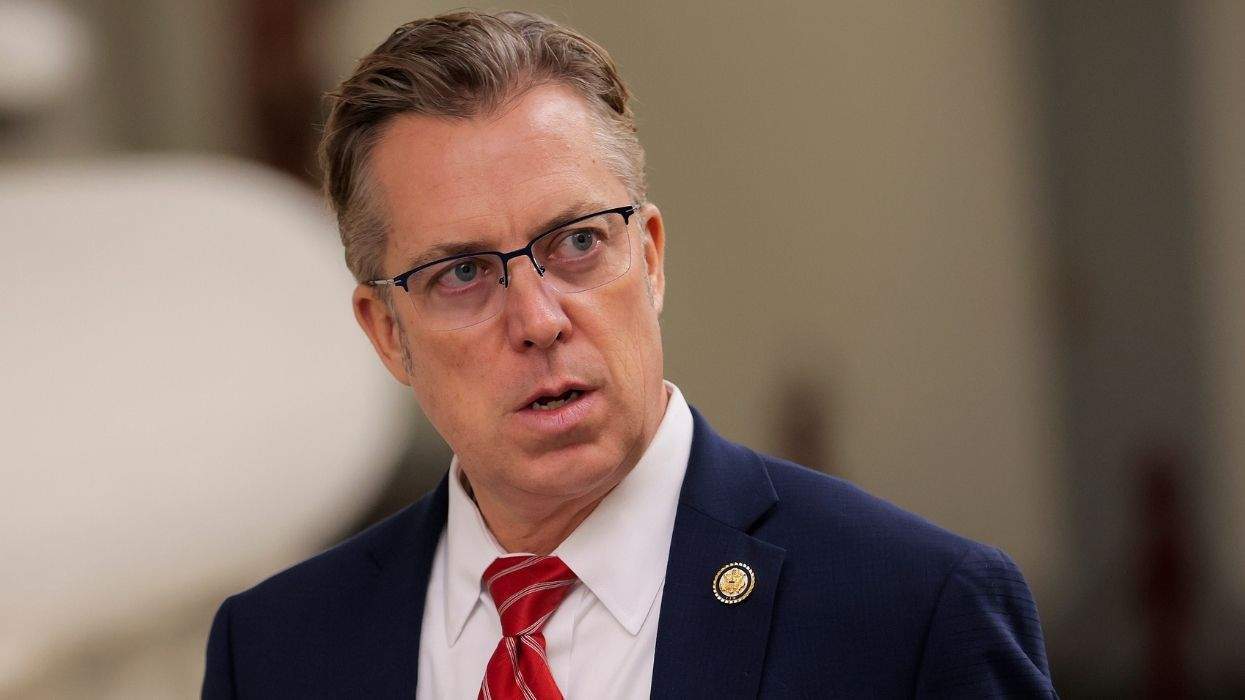The COVID-19 pandemic has exposed long-standing health disparities -- disparities with grave and all too frequently fatal consequences for Black and Brown people in this nation, including those who are LGBTQ+. People of color are three times more likely to get COVID-19, almost twice as likely to die from the virus, and have less access to vaccination. These grim statistics are fueled by inequitable access to health services in our communities, as well as deep-rooted -- and deeply understandable -- mistrust in a healthcare system that has been failing us for years.
The events of the past year have opened eyes to the inequities our communities face, but for us, this is tragically nothing new.
As Black gay men who have dedicated our lives to promoting equity and equality in the fight against HIV, the impact of this new global health crisis is hauntingly familiar. To save lives, we will need urgent, collaborative action to address the systemic forces of oppression that are driving these injustices. The fight to end HIV is nowhere near complete -- and it is a fight inextricably linked to our shared quest for liberation for our communities. The statistics tell a shocking story. One in every two Black gay and bisexual cisgender men and one in every four Latinx gay and bisexual cisgender men will be diagnosed with HIV in their lifetime. In addition, Black people in the United States account for 43 percent of new HIV diagnoses, despite representing only 13 percent of the U.S. population. The transgender community is also disproportionately impacted, with an estimated 26 percent of Latinx transgender women and an estimated almost half of Black transgender women in the United States living with HIV today.
Research proves that access to good, quality healthcare results in positive impacts on the health outcomes of Black and Brown communities. But there is still a gaping need to set an even playing field.
We have lost our way in the ongoing struggle to provide health equity for all. Critical resources that raise awareness, educate, support and heal those at risk of and living with HIV, as well as their care network, remain scarce. In some communities, they are nonexistent. And for those who have been on the frontlines of this fight, they confront a lack of investment and support from government, businesses and even members of our own movement.
But with greater national awareness of what needs to be changed, we have an even greater opportunity to realize the change that is needed. With renewed attention on racial injustice and global health, 2020 ushered in a long-overdue focus on these issues, as well as a moment to mitigate health inequities long perceived as intractable. We now have more advocates and allies who stand alongside us, including our new president and vice president.
We are inspired by the early actions of a new administration that is advancing policies with an inclusive focus. The current administration's swift announcement of the COVID-19 Health Equity Task Force, which will help ensure that response, care and treatment for COVID-19 is distributed equally, is a step in the right direction, but much more needs to be done. We need to build off these current efforts to ensure real and lasting transformation of our systems, and we need to do so in coordination and coalition.
We become stronger by working together. That's why our organizations recently announced a two-year initiative to focus support on communities that are disproportionately impacted by the HIV epidemic in the United States, including Black, Latinx, trans and other high-risk groups. The grant funding provided by Gilead will enable HRC to reduce stigma around HIV and make health and support services more available to those who need it most. This initiative will work to dispel stigma through public education campaigns, supplement HIV prevention and education at Historically Black Colleges and Universities across the country and support the Human Rights Campaign's Transgender Justice Initiative.
We appreciate that health equity is gaining renewed national attention and that so many people are now demanding tangible social change. If we as a nation can recognize the challenges, and truly listen to those who are being impacted, we can achieve meaningful goals for health equity and equality for all.
Alphonso David is president of Human Rights Campaign and Douglas Brooks is vice president of Advancing Black Equity and Community Engagement for Gilead Sciences.















Charlie Kirk DID say stoning gay people was the 'perfect law' — and these other heinous quotes
These are some of his worst comments about LGBTQ+ people made by Charlie Kirk.